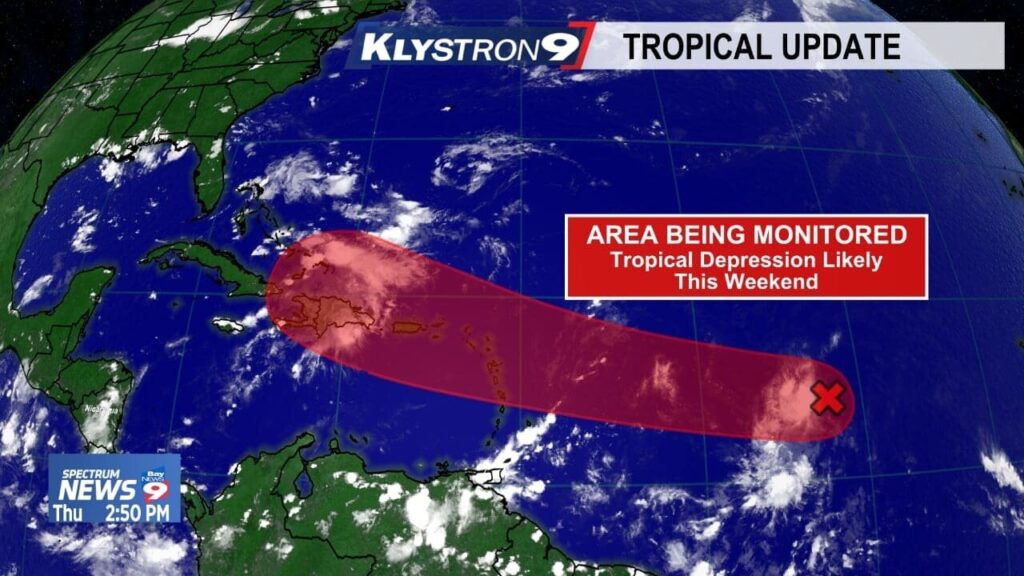SAN JUAN — The Coast Guard set Port Condition WHISKEY on Thursday for all maritime ports in Puerto Rico and the U.S. Virgins Islands, due to the approach of Disturbance Invest 95L to the Caribbean.
The Coast Guard strongly cautions the maritime community to take the necessary precautions and remain vigilant to any new weather forecasts for Invest 95L. Environmental conditions for this tropical wave are expected to gradually become more conducive for development and the system is expected to reach portions of the Leeward Islands late Saturday or early Sunday.
During Port Condition WHISKEY, port facilities are currently open to all commercial traffic and all transfer operations may continue. Oceangoing vessels, 500 gross tons and above, must make departure plans for leaving the port no later than the setting of Port Condition YANKEE.
Maritime and port facilities are reminded to review and update their heavy weather response plans and make any additional preparations needed to adequately prepare in case of a potential impact to the area. Mariners can view the latest Sector San Juan port updates on the Coast Guard’s Homeport site.
Pleasure craft owners are advised to seek safe harbor prior the arrival of the tropical wave and pay close attention to any changes in weather forecasts and small craft advisories.
Based on the current trajectory and expected development of this system, the Coast Guard Captain of the Port for Sector San Juan anticipates increasing and setting Port Condition X-RAY at 5 a.m. Friday for the maritime ports in Puerto Rico and the U.S. Virgin Islands.
The Coast Guard advises the public of these important safety messages:
Secure belongings. Owners of large boats are encouraged to move their vessels to inland marinas where they will be less vulnerable to breaking free of their moorings or to sustaining damage. Trailer-able boats should be taken out of the water and stored in a place not prone to flooding. Those leaving their boats in the water should remove their EPIRBs and secure life rings, lifejackets and small boats. These items, if not properly secured, can break free and require valuable search and rescue resources be diverted to ensure people are not in distress.
Stay clear of beaches. Wave heights and currents typically increase before a storm makes landfall. Even the best swimmers can fall victim to the strong waves and rip currents caused by storms. Swimmers should stay clear of beaches until local lifeguards and law enforcement officials say the water is safe.
Be prepared. Area residents should be prepared with a family plan, a disaster supply kit, by having a place to go, securing their home and having a plan for pets. Information can be found at the National Hurricane Center’s webpage.
Stay informed. The public should monitor the progress and strength of the storm through local television, radio and Internet. Boaters can monitor its progress on VHF radio channel 16. Information can also be obtained on small craft advisories and warnings on VHF radio channel 16.

